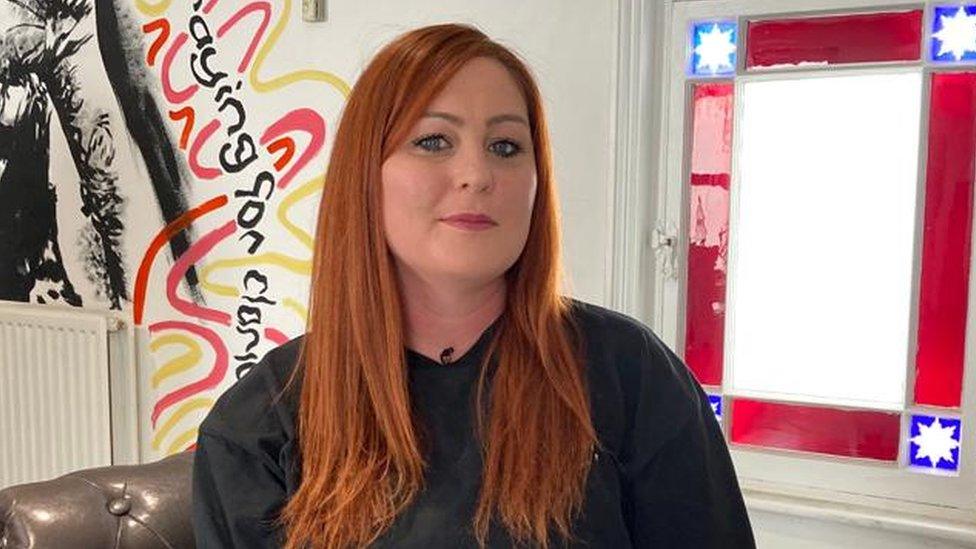Disability: Technology used to give Welsh accents back
- Published
Shannon Folena says she hopes the new voice options will help her to be treated as the Welsh adult she is and not like a child
Shannon Folena was 11 when she was hit by a car - the brain injury she sustained robbed her of much of her mobility, but also her voice.
For 10 years, Shannon, now 21 and at college, has had to communicate through a computerised speech programme.
Now, for the first time, people like her have the chance to regain their Welsh accents.
Shannon was given a similar programme to that used by the late scientist Stephen Hawking.
It meant that, almost overnight, her Welsh accent was gone and her thoughts and feelings were shared in a voice that sounded more like an American man.
"It doesn't sound like how I did before my accident," she said.
"I would like a voice that sounds like my family or friends from Pembrokeshire."
Shannon is one of dozens of young people from Wales who hope to be able to speak in their native accent for the first time thanks to new Welsh government funding.
Unlike in England and Scotland, regional dialects have not previously been available for children and teenagers in Wales who rely on technology to help them speak.
Ella Rees, 19, who has cerebral palsy, external, said: "I am from Cardiff, but I talk like I'm from England. It's not the real me."
Ella communicates through a device that recognises her eye movements.
Although her facial expressions show all the signs of an excitable and energetic teenager, the voice that comes out sounds like a middle-aged woman.
"In my head, my voice is like I'm from Cardiff. I want a Welsh voice because it would feel more like it's me talking.
"I think it will be funny at first, but then it will be amazing."
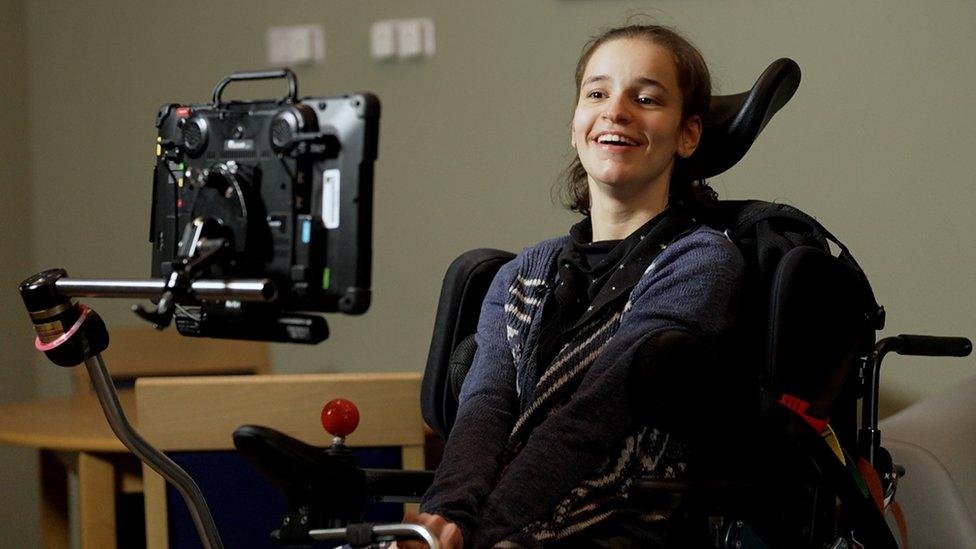
Ella says she "want to feel more like my family" when she speaks
Ella and Shannon's college, National Star in Cheltenham, has agreed to fund bespoke voices for them both as part of a project aimed at giving people a greater sense of identity.
The Welsh government has also funded a new initiative to allow children and teenagers to choose between north and south Wales accents on the NHS for the first time.
Previously, only Scottish or English were available.
The new pre-recorded voices will also give users the ability to speak in both Welsh and English.
Six-year-old Lina, from Hengoed, Caerphilly county, will be one of the first to receive a new bilingual voice.
Her mum Rebecca said the voice Lina had been using was "very, very English" and it was obvious she did not sound like other children in the area.
"It can be really jarring when your voice doesn't match what the rest of the community sounds like, so for her to be able to have a voice that matches what her peers sound like - not just in English but going into a Welsh medium school - it's ground-breaking," she said.
"I can't wait to go into school and hear her speak exactly like her peers are speaking, I can't wait to hear her sound like the six-year-old that she is."
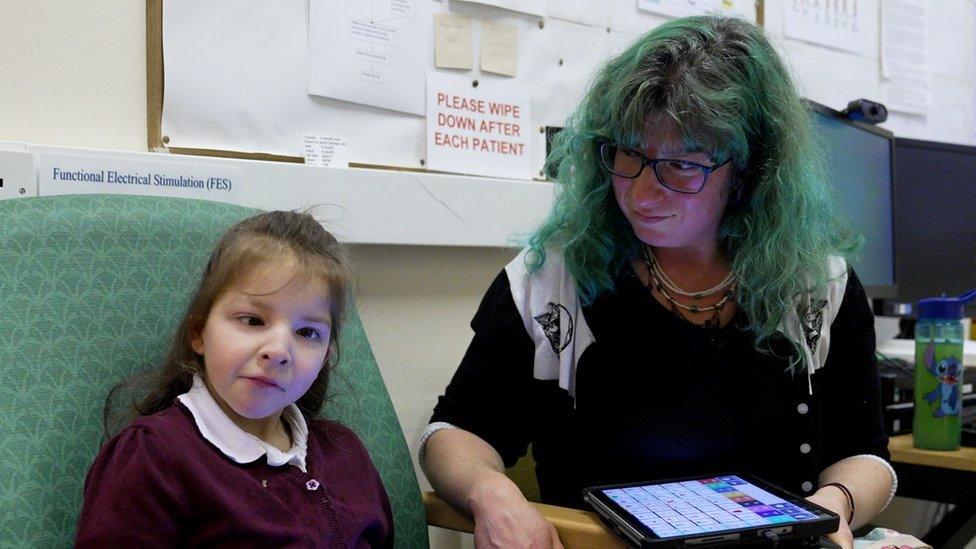
Lina will be one of the first children to receive a new bilingual voice
The Welsh government is providing funding for eight new bilingual voices for children and young people.
Dr Jeff Morris from the National Centre for Electronic Assistive Technology in Wales said: "Eight voices aren't enough. Ideally, we'd like every voice to be as individual as possible.
"But you can change some of the parameters, sort of fine tuning the voice, so you can change the speed of articulation."
Julie Morgan, Wales' deputy minister for social services, said children who used technology to help them speak "should not face a barrier to sounding like their friends and peers".
"I am delighted these new Welsh language and Welsh accented voices will help give them more options and a greater sense of Welsh identity," she said.

A SPECIAL SCHOOL: Life in Britain’s biggest special school
FANCY A LAUGH?: Join Rhod Gilbert as he tries out different jobs across Wales

- Published18 September 2018
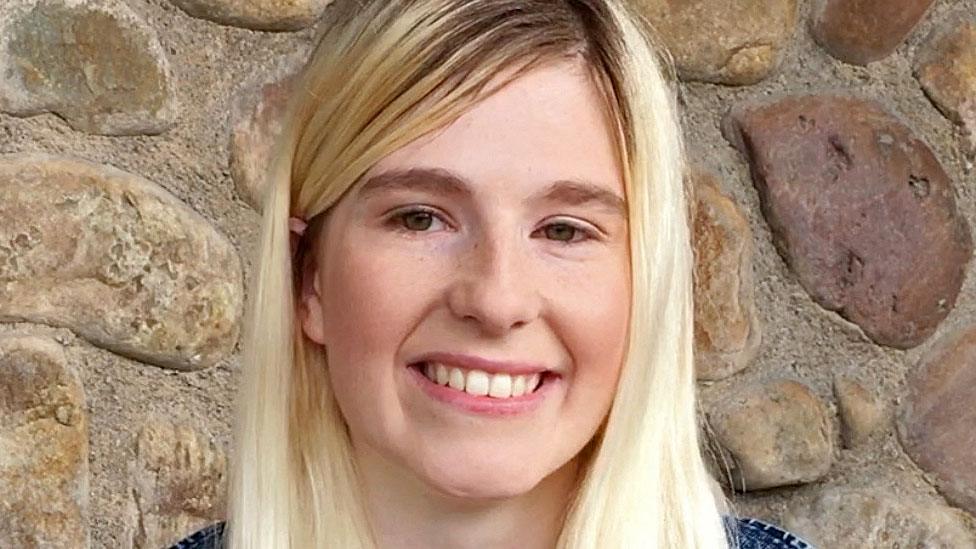
- Published26 April 2019
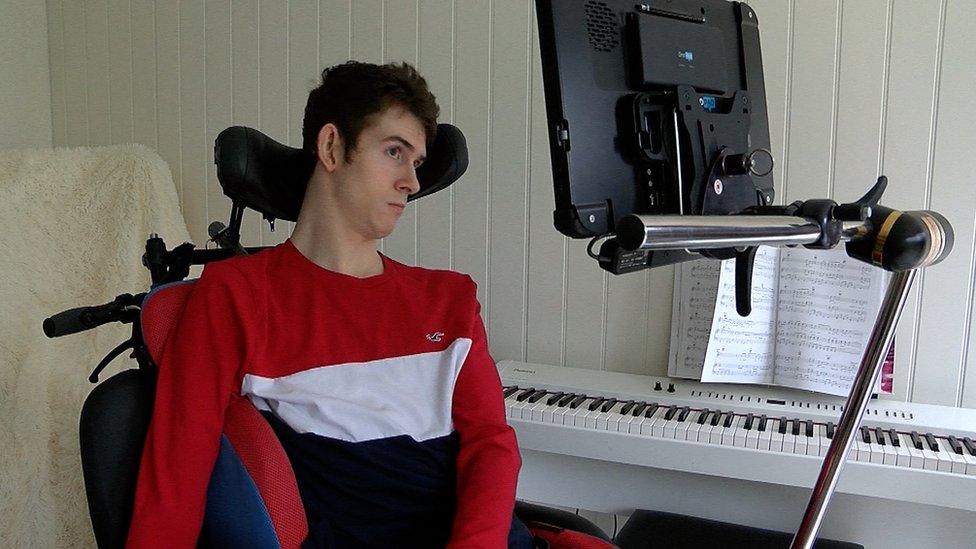
- Published13 July 2023
